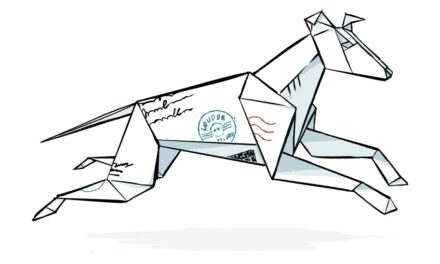
INFORM Whitepaper Shows How to Improve Sortation System Efficiency

INFORM has released a new whitepaper titled “A Win-Win,” which outlines how parcel operators can balance their sortation system’s efficiency to sub-90% levels while also improving the safety and productivity of their yard environments.
“We’re constantly exploring the way AI can be used to benefit our post and parcel customers and we’re excited about the results of this simulation,” commented Dr. Eva Savelsberg, Senior Vice President Logistics Division, INFORM.
“As an AI software specialist, we’re exploring how AI and Machine Learning can further enhance the post and parcel sector beyond our current YMS product offering.”
The whitepaper provides a comprehensive overview of the simulation including their motivation for running the simulation, the process they used, and the results they found.
INFORM shows in the whitepaper that by utilising a yard management system (YMS) empowered with AI algorithms, parcel operators can derive significant benefits for their sortation system and their overall operations including up to an 18% reduction in total task time to unload, sort, and load parcels without changing their sortation system.
Instead, INFORM proposed that parcel operators reconsider the goals of their YMSs and shift them from being YMS-centric to being sorter-centric.
They outlined YMS-centric goals as managing inbound and outbound load units/transports, maximising yard efficiency, and minimising excess travel of shunting vehicles while contrasting these with sorter-centric goals such as balancing sorting workload to a sub-90% capacity, minimising latest completion time, and minimizing simultaneous changes at pre-sorters as well as adjacent dock doors.
The simulation evaluated the impact of AI-empowered decision making to reinforce the sorter-centric goals over traditional YMS-centric goals across three different sized facilities ranging from small (9 loading docks), medium (32 loading docks), to large (96 loading docks).
INFORM was able to demonstrate in their simulation that even in a small facility, improvements could be reached including a reduction in sorter utilisation to sub-90% utilisation, a reduction in the average workload of sorters, and a reduction in total task time of 10%. In the medium-sized facility simulation, they were able to achieve a reduction of 15% in total task time, and in the large facility simulation, they showed an 18% reduction in total task time, shaving nearly an hour off each sorting wave.
Dr. Savelsberg added, “It shows conclusively that by taking more informed decisions in the yard, parcel operators can derive significant benefits throughout their sorting facilities.”
For those not familiar with queuing theory, the whitepaper also provides readers with an understanding of why a sub-90% workload is important.
“Queuing theory tells us that the expected delay grows exponentially in correlation with an increase in utilization. Our research and experience tell us that the practical capacity of sortation systems is typically 85-90% of its theoretical capacity.”
INFORM’s AI enabled YMS software optimises the handling of load units in post and parcel centers. Through the synchronized interaction between gate, yard, and logistics center, the AI enables an efficient, transparent, and optimized yard management reducing cost, increasing yard productivity, and improving on-time performance.
Based in Aachen, Germany, with regional offices in North America and Australia, INFORM has been in the optimisation business for 50 years and serves a wide span of logistics industries including post and parcel operators.












